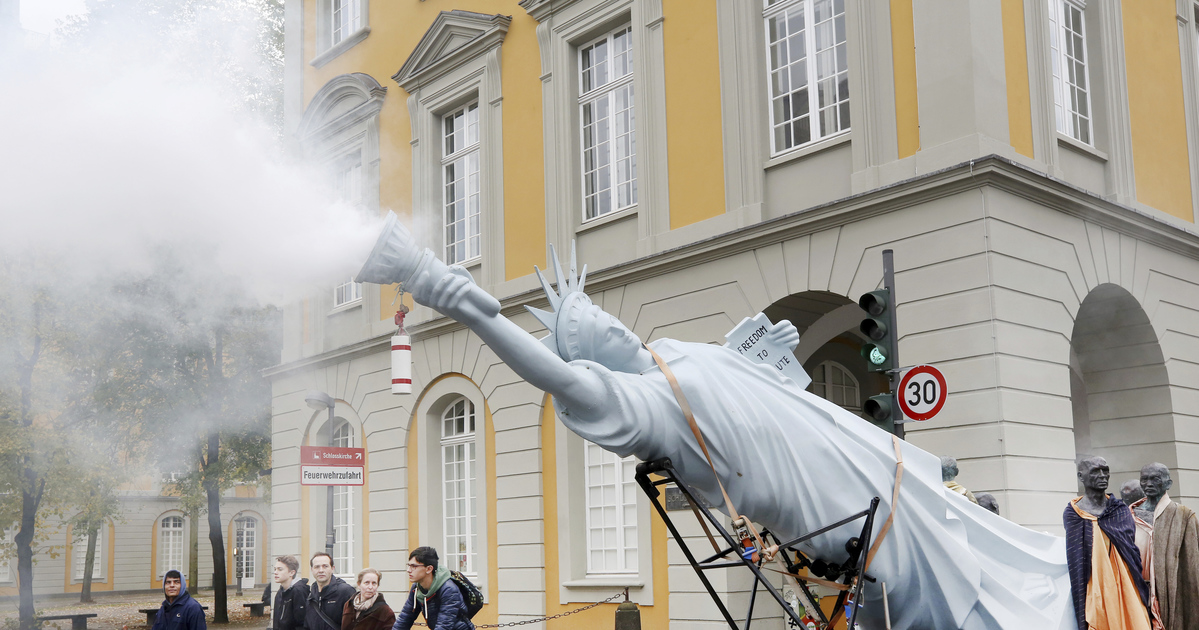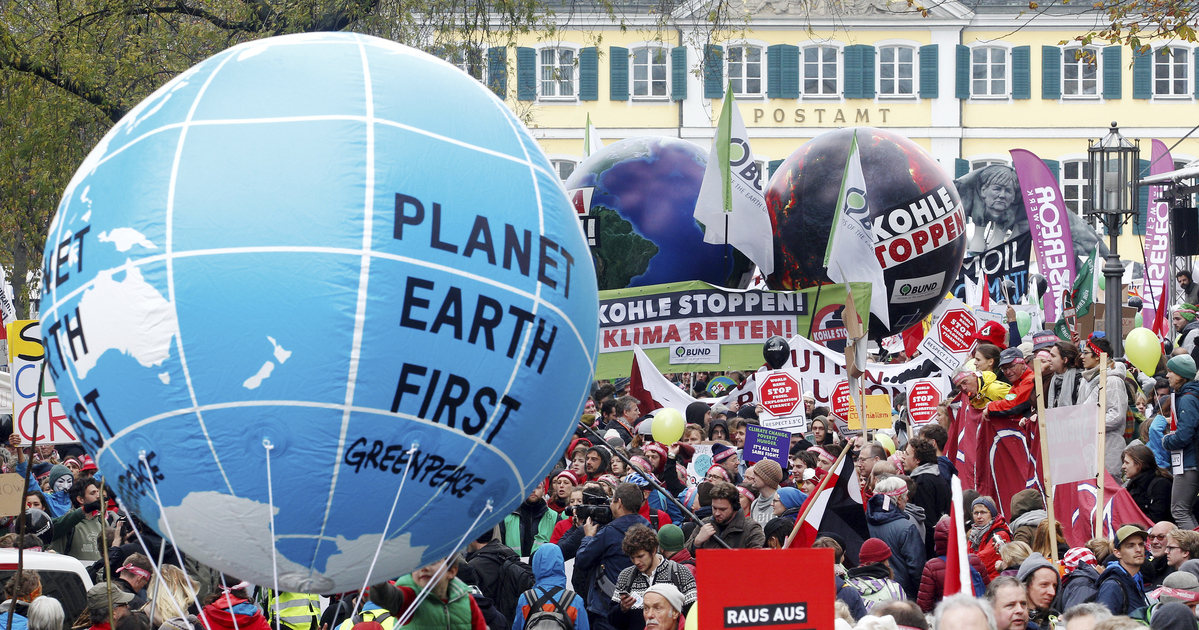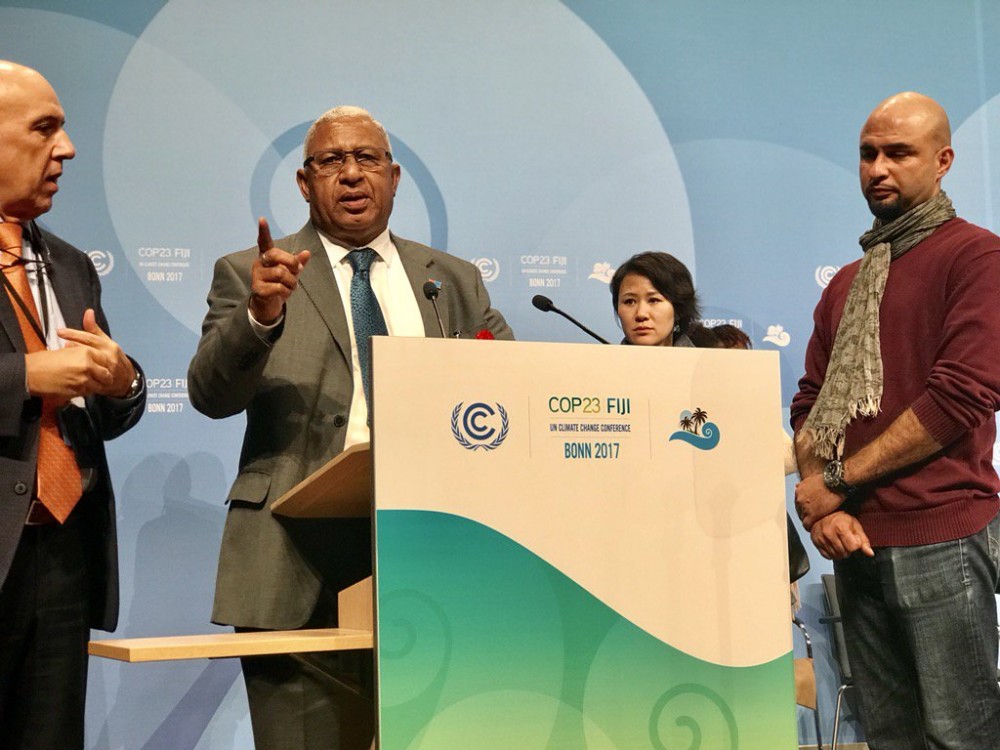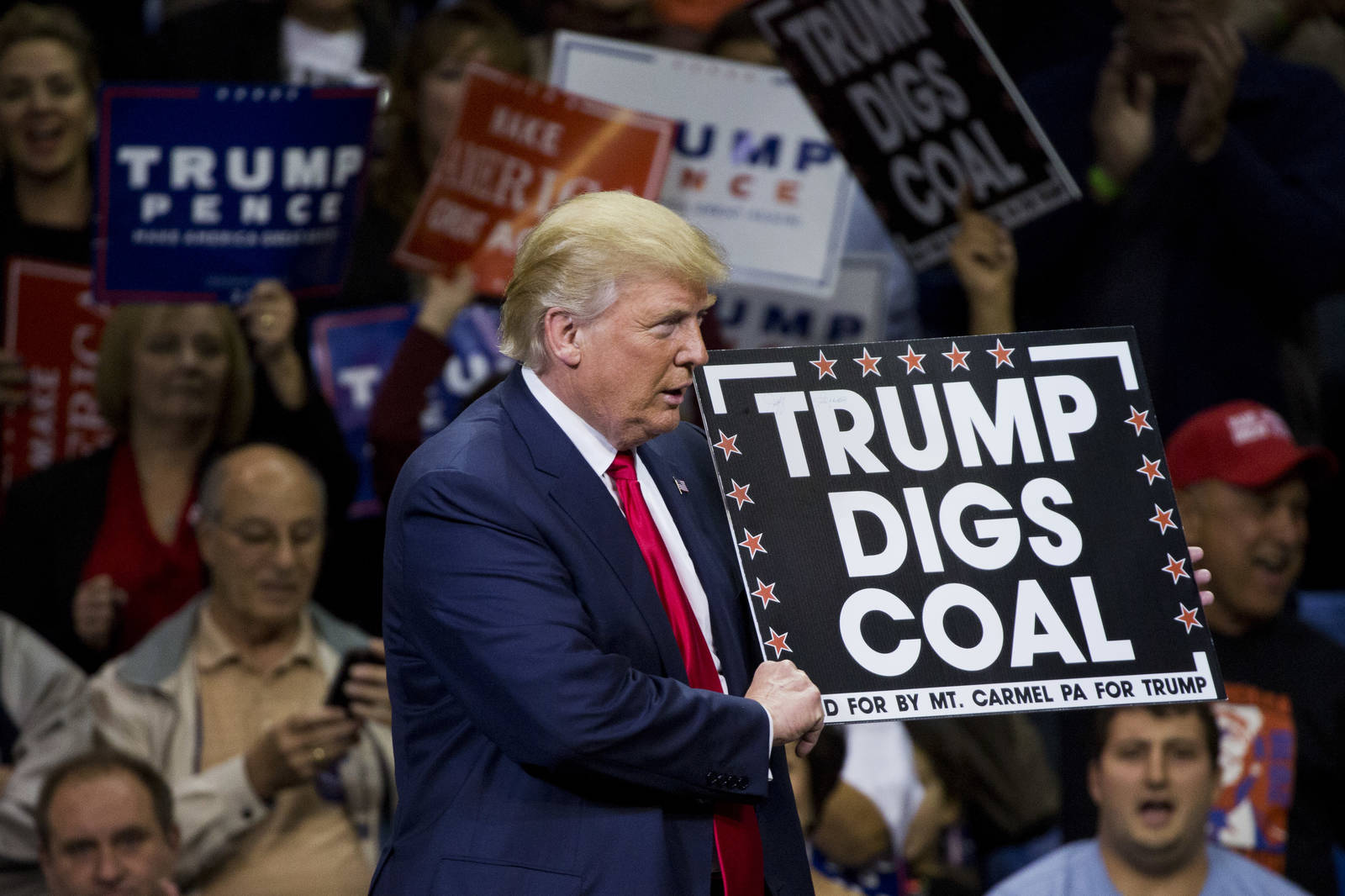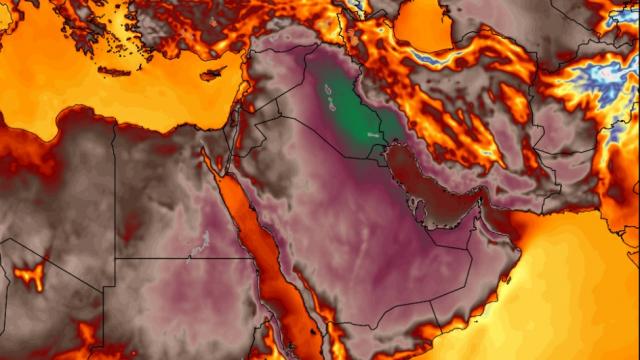
Last year, a golf course in Ireland owned by Donald Trump applied to build a sea wall against rising seas. In September, Trump's mansion on the Caribbean island of St. Martin was damaged by Hurricane Irma, the most intense storm to hit the U.S. since Katrina. Much of Trump's property empire in Florida could be underwater by the end of the century. Imagine Trump in one of his mansions, drenched, water swelling toward the ceiling, claiming he is standing in “fake sea.”
Of course, Trump isn't just some irrational property mogul: He leads the U.S., the world's second biggest emitter of greenhouse gases after China. And although he remains a steadfast denier of any of the problems associated with climate change, the facts tell a different story as extreme weather continues to ravage the U.S. – from wildfires in California to floods in Texas to “exceptional drought on the northern plains”. The U.S. Government Accountability Office warns that climate change will cost the U.S. trillions of dollars in the coming decades.
Fortunately, global leadership outside the U.S. is emerging powerfully to combat climate change, and those taking responsibility have come together for the Conference of the Parties, or COP23, starting Monday in Bonn, Germany.
Leading from the Front (line)
For the first time ever, an island nation severely threatened by climate change, Fiji, will lead this year's COP gathering, which runs from Nov. 6 through 17. “The Fijian people, along with every Pacific Islander, live on the front lines of climate change. The rising seas, changing weather patterns and severe weather events are threatening our development, our security and the Fijian way of life, along with the very existence of some of our low-lying neighbors,” Fijian Prime Minister and COP23 President Frank Bainimarama said in a statement.
Fiji and other vulnerable islands nations have set out the necessary steps to keep global the temperature rise below 1.5 degrees celsius. This includes going further and faster than the agreements made in Paris at COP21.
One important step, they say, is for all governments to ratify past agreements. Fiji has called on nations that signed the Kyoto agreement to ratify what is known as the Doha Amendment, making concrete commitments to reduce emissions immediately. As of Sept. 21, only 84 of 192 countries had ratified it – still 60 shy of the 144 nations required to agree in order for it to be binding.
The impacts from climate change on Fiji and other Pacific island nations will be staggering. Neighbouring Kiribati may be wiped off the map altogether. Storms are intensifying, like cyclone Winston, which hit in 2016 and cost an estimated $1 billion in damage. And with the world nearly three-quarters covered in water, the increasingly volatile oceans are impacting on continents everywhere.
Scientists connect Pacific and Atlantic warming to U.S. wildfires and droughts. In the Indian Ocean, islands including Mauritius and Sri Lanka are facing continual droughts, storms, sea-level rise and algae blooms. Scientists now worry this area could turn into an "ecological desert".
These disasters relate to other nearby regions, as South Asia has gotten hit by both intensifying monsoon floods and periods of drought. What has happened even in the last three years backs up predictions that continental areas surrounding the Indian Ocean will face the most severe climate consequences. As Occupy.com has reported, due to climate volatility, by 2050 at least 250 million people could become climate refugees.
Clearly, previous climate negotiations have not gone far enough. The ecological crisis facing the world demonstrates this, as does the fact that 22 COPs have already happened – yet carbon emissions continue at record pace. Of course, big nations are the biggest problem as the worst polluters, both today and historically. Even before Trump these nations had failed to commit to really tackling climate change, evidenced by how many big countries did not sign the Doha Amendment.
Getting Big States Onboard
Fiji is pushing the idea of a Grand Coalition as a way to tackle climate change even if some of the biggest countries will not. During COP21 in Paris, different regions, provinces and cities, backed by some nations, signed up to keep global temperatures below 2 degrees in what is called the Under-2 Coalition. By September 2017, more than 1.2 billion people were represented in this pledge.
In early June, after Trump announced the U.S. was pulling out of the Paris agreement, Fiji, as the COP president nation, made Governor Jerry Brown of California the Special Advisor for States and Regions to further roll out the initiative. Many see it as a shrewd move. California alone represents the sixth largest global economy and has committed to doing its share to implement the Paris accord. The Grand Coalition now includes 18 U.S. jurisdictions – one-third of the national population – committed to limiting emissions.
California demonstrates pledges backed up by action. It has committed to cutting emissions 40 percent by 2030. Already it has fallen to 1990 emission levels by shifting hard to solar energy, among other measures. Gov. Brown will host a global climate summit in San Francisco next year, continuing the work of the Grand Coalition for nations, states, regions and cities to share know-how and reduce emissions below 2 degrees.
Brown has also continued diplomatic agreements with China initiated under President Obama. The world's largest emitter, China suffers from extreme smog problems, yet is actively transforming from grey to green. The country has cancelled the building of over 100 coal-fired power stations and will pump over $360 billion into renewable energy by the end of the decade. It is the global leader in green technology, creating millions of jobs and on track to meet its 2030 emission targets early.
Meanwhile, the European Union and India, the world's 3rd and 4th largest emitters, are also making serious moves to reduce greenhouse gases. Like California, the E.U. has pledged to cut emissions 40 percent from 1990 levels by 2030. India, for its part, also aims to rely on renewables for 40 percent of its power by that time, or sooner.
But, particularly with the E.U. it is important to remember its historic and continued role in creating greenhouse gases. Germany itself is well-known for renewables, but Bonn is also near the country's extensive coal industry. As COP23 shows, the real climate leadership is being shown by states most vulnerable to climate change, which did the least historically to cause it. Fiji, for example, is showing the way: It plans to be 100 percent renewable by 2030.
Other examples include last year's COP hosts, Morocco, which stopped all fossil fuel subsidies and set a target of achieving over 50 percent powered by renewables by 2030, and Costa Rica, which in 2016 created 98 percent of its electrical generation from renewables.
Looking at this month's conference and beyond, it seems the kind of world leadership required to mitigate climate change needs to be – and is now being – driven by the most vulnerable and least polluting nations, supported by large countries, states and regions. This is the vision of Fiji's Grand Coalition.
3 WAYS TO SHOW YOUR SUPPORT
- Log in to post comments

